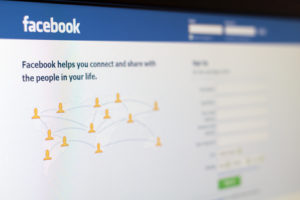Perusing Facebook, sending rapid-fire text messages, and tweeting back and forth with friends and celebrities alike might not be the best academic strategy, it turns out.
A new study released by researchers at The Miriam Hospital’s Centers for Behavioral and Preventive Medicine shows a link between social media use and poor academic performance. The study wasn’t limited to usage of traditional social media outlets like Twitter and Facebook, but instead included popular social technology like texting.
Freshman women spend upwards of 12 hours a day using some form of social media, researchers found. Social networking and watching movies and TV were most negatively associated with academic performance among the study participants.
Read more about social media in higher education…
Social media in higher education: Pros, cons, and overall impact
Jennifer Walsh, lead author of the study, which was published in the journal Emerging Adulthood, wrote that students who spent the most time using social media had “fewer academic behaviors, such as completing homework and attending class, lower academic confidence and more problems affecting their school work, like lack of sleep and substance use.”
There were two media-related activities that were linked to higher grade point averages: listening to music and reading the newspaper.
Nearly four in 10 college students said they could not go 10 minutes without checking one of their mobile devices, “about the same amount of time it takes to walk to class,” according to a 2011 study by CourseSmart, a leading eTextbook company based in California.
Almost every one of the 500 college students surveyed – 98 percent – said they own a digital device, and many said the technology made more time for their busy schedules. Eighty-five percent of respondents said their devices save time while studying – an average of two hours a day.
Kate Caroll, a junior history major at the University of Maryland, College Park, said she checks her smartphone “pretty incessantly,” inside and outside of class.
“The phone never leaves my side, wherever I am,” said Carroll, 33, who has connected with online friends since the mid-1990s, when she frequented web-based bulletin board systems (BBSs). “Even if I’m at home watching TV, I’ll have the phone in my hand, and at the very least, I recheck Facebook during every commercial. I’ll also check it at every red light while I’m driving, and every stop sign if there isn’t anyone behind me.”
- Research: Social media has negative impact on academic performance - April 2, 2020
- Number 1: Social media has negative impact on academic performance - December 31, 2014
- 6 reasons campus networks must change - September 30, 2014

